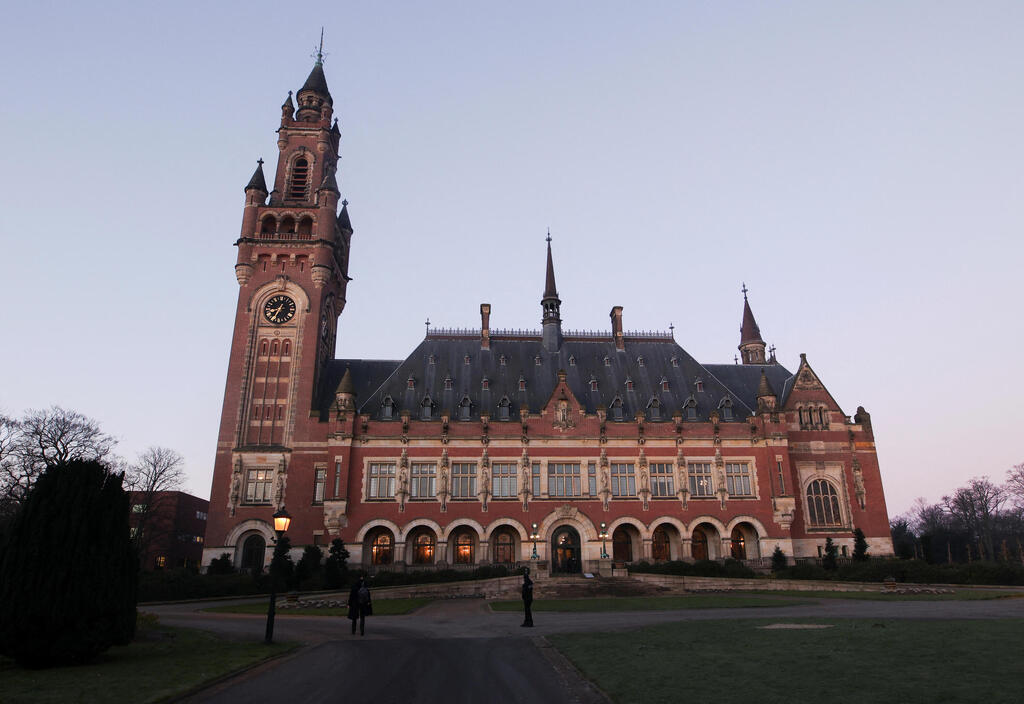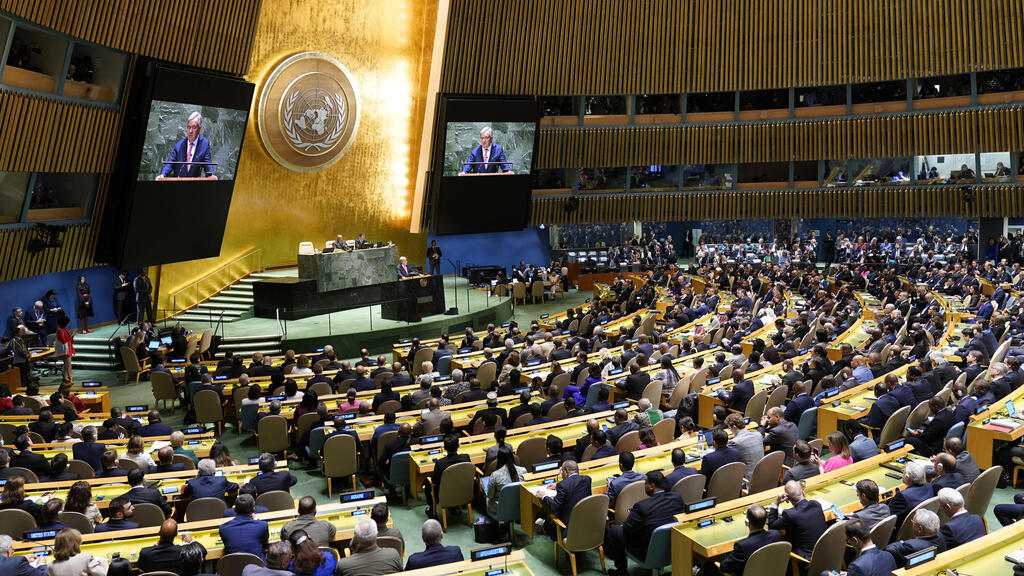Getting your Trinity Audio player ready...
Israel is facing accusations that it broke a international law by refusing to let aid into the Gaza Strip as dozens of nations begin presenting arguments at the International Court of Justice during a week of hearings starting in The Hague on Monday.
In December, the UN's top court was tasked with forming an advisory opinion on Israel's obligations to facilitate aid to Palestinians that is delivered by states and international groups, including the United Nations.
The claims say that Israel completely cut off all supplies to the 2.3 million residents of the Gaza Strip since March 2 and food stockpiled during a ceasefire at the start of the year has all but run out.
Israel has said it would not allow the entry of goods and supplies into Gaza until the Palestinian terror group Hamas releases all remaining hostages.
Germany, France and the UK last week called on Israel to adhere to international law by allowing the unhindered passage of humanitarian aid into Gaza, after Israel reiterated that no aid would be allowed to enter Gaza, in order to pressure Hamas.
U.S. President Donald Trump on Friday said he had pushed Prime Minister Benjamin Netanyahu to allow food and medicine into the Palestinian territory.
Israel has repeatedly accused Hamas of hijacking humanitarian aid that was allowed into Gaza. Hamas has denied the allegations and has blamed Israel for shortages.
The resolution adopted in December by 137 of the 193 nations in the UN's General Assembly called on Israel to comply with its obligations toward the Palestinian population, as it expressed "grave concern" about the dire humanitarian situation.
Israel, the United States and 10 other countries voted against the resolution, while 22 countries abstained. Representatives for the Palestinian territories will be among the first to address the court in The Hague on Monday.
Israel is not among the roughly 40 nations that will speak during the five days of hearings scheduled through Friday.
"This is another attempt to politicize and abuse the legal process to persecute Israel. The goal is to deprive Israel of its most basic right to defend itself. It is not Israel that should be on trial — it is the UN and UNRWA," Foreign Minister Gideon Saar said Monday in a statement.
"The UN has become a rotten, anti-Israel, and antisemitic body. Clear evidence shows that under the UN and its secretary-general, UNRWA employed terrorists who took an active part in the October 7th massacre — and then covered it up," he added. "This case is part of a systematic persecution and delegitimization of Israel. It abuses the international legal system and politicizes it. No country — democracy or non-democracy — has been brought before the Court as much, and as often, as Israel. No country is subject to such double standards."
Get the Ynetnews app on your smartphone: Google Play: https://bit.ly/4eJ37pE | Apple App Store: https://bit.ly/3ZL7iNv
The United States will state its opinion at the ICJ on Wednesday. Advisory opinions of the ICJ, also known as the World Court, carry legal and political weight, although they are not binding and the court has no enforcement powers.
The UN views Gaza and the West Bank as "occupied territory." International humanitarian law requires an occupying power to facilitate relief programs for people in need and ensure food, medical care, hygiene and public-health standards. After the hearings, the World Court will likely take several months to form its opinion.




